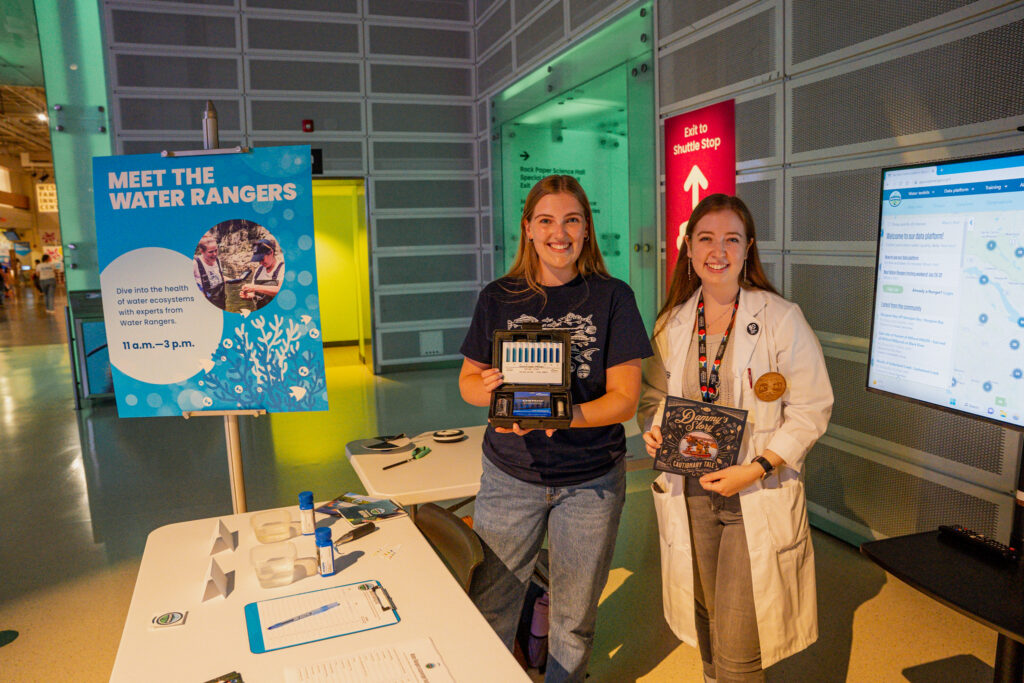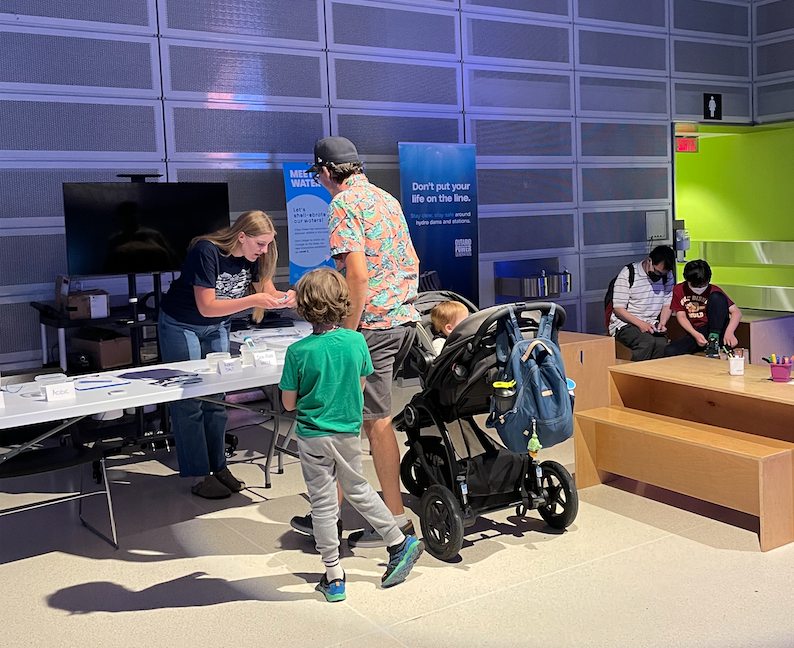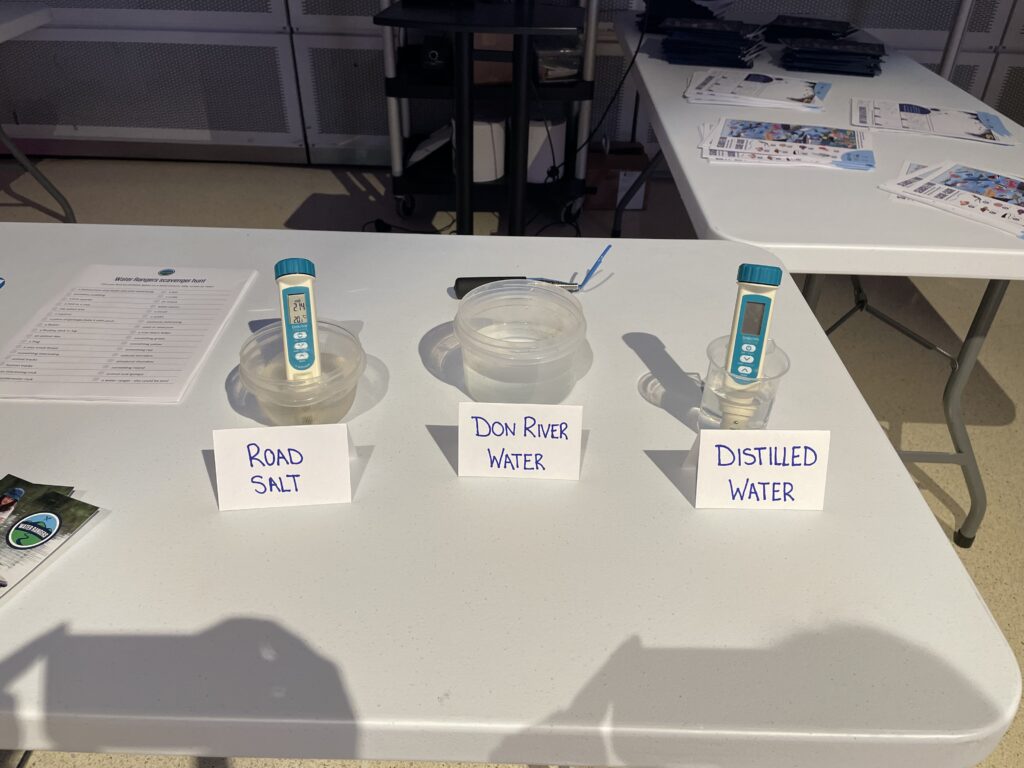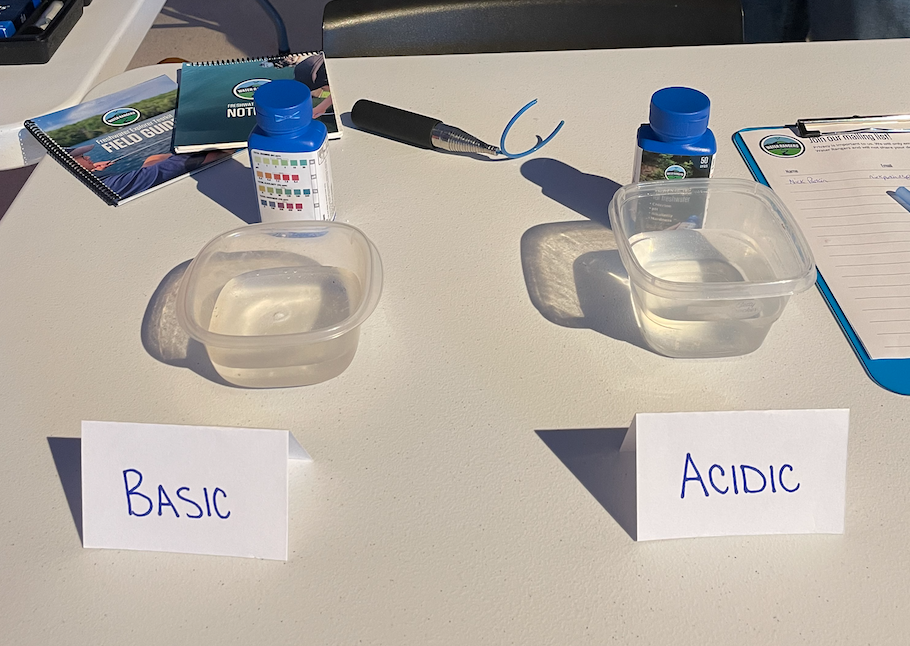Water Rangers at the Ontario Science Centre
A couple weekends ago, Water Rangers dove into community-based water monitoring at the Ontario Science Centre! Emma, our Community Trainer, had the opportunity to set up shop in the Science Centre’s hot zone to highlight the importance of community science. Visitors were able to get their hands wet learning about the health and threats to Toronto’s waters, with a spotlight on the Don River.

Spotlight on the Don River
A major topic of discussion was how road salts are impacting water quality. With the Don River being an urban stream, road salt runoff is a huge issue. Road salts, and more specifically chloride, impacts everything from biodiversity and ecosystem functions to drinking water and human health. Water monitoring has found that chloride levels downstream from major roads in Canada are 31 times higher than upstream concentrations (Cañedo-Argüelles, 2013)! We currently use conductivity meters to monitor increases of road salts in water bodies.

An experiment with conductivity
Using our conductivity meters, we compared distilled water with water from the Don River to show the difference in conductivity. The comparison demonstrated how urban freshwater systems typically have a conductivity between 700-2000 us/cm, versus distilled water which has a conductivity of zero. These levels typically spike in the winter months when road salts are spread following winter storms.

The effects of acidic vs. basic water
Our other focus was on pH and determining the acidity or alkalinity of water. pH plays an important role in determining the conditions for life. It determines the availability of nutrients and the ability for things like heavy metals to dissolve in water. Rivers and lakes typically range between 5 (acidic) and 9 (basic) on the pH scale. Folks learned about how water that is too acidic or too basic can be harmful to fish and other aquatic life! Low pH, for example, can reduce how many fish eggs hatch and can make life difficult for fish and macro-invertebrates.

Many thanks!
We met so many wonderful people interested in community science and water monitoring. Special thanks to Victoria Gee for inviting us and organizing this incredible event! We’d also like to thank everyone who stopped by at our table to learn a little more about community science!
